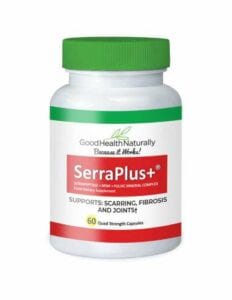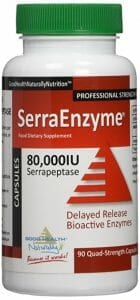 Sinus pressure treatment
Sinus pressure treatment
My wife has suffered from Sinus headaches for a long time, as a family, we have researched sinus pressure treatment, and she has tried many ways to get relief from the horrible pain in her face and head, some have worked in the short term but until now we could not find a permanent solution for her sinus pressure treatment.
A sinus headache and face ache a very uncomfortable feeling affecting her daily life.
So, what did we find useful in the short term and how did we find a permanent solution for sinus pressure treatment?
But first, let’s try to understand what is going on in our Sinuses.
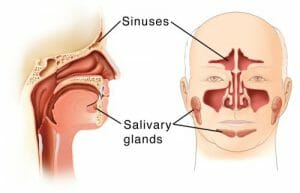
Where are your Sinuses?
Your sinuses are a connected system of air spaces (hollow cavities) located in the upper part of the respiratory tract between your nose and your throat. Sinuses vary in size from about one inch across, other sinuses are much smaller. There are frontal sinuses (forehead) maxillary sinuses (cheekbones) and ethmoid and sphenoid sinuses (behind the nose)
The largest sinuses are in your cheekbones, these are called maxillary sinuses. The frontal sinuses are in the low centre of your forehead, the ethmoid sinuses are located between your eyes and the sphenoid sinuses are located behind your nose.
The sinuses are lined with a soft pink known as the mucosa, the sinuses are normally empty apart from a thin mucus layer.
What do Sinuses do?
Inside the nose we have what are called turbinates (ridges), the function of these ridges is to humidify and filter air as it enters the sinuses. The nose is divided by a thin wall called the septum, there is small drainage or small channel (middle meatus) where most of the sinuses drain into the nose. Some believe that our Sinuses are used for voice resonance as well as removing unwanted particles.
Why do we get a Sinus infection?
Over 31 million people in the USA are affected by Sinus infections every year, many are looking for sinus pressure treatment.
Sinusitis or Sinus infection occurs when inflammation is present in the sinus cavities, there are many reasons for the inflammation in the sinus and nasal cavities.
1. A virus or bacteria may have been multiplied by a deviated nasal septum (Allergy)
2. Dust, pollen exposure or pet dander cause an allergic reaction leading to inflammation.
3. People with a weak immune system find it hard to shake off bacteria or viruses.
4. Nasal polyps, tooth infections and allergies
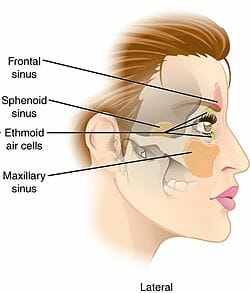 What happens when we get inflammation in the sinuses?
What happens when we get inflammation in the sinuses?
The paranasal sinuses become inflamed which leads to an infection known as Sinusitis, this leads to internal pressure within the sinuses also caused by swelling and sometimes nasal polyps. The pressure leads to severe pain in the cheek, eyes, nose, and forehead.
Nasal discharge:
The nasal discharge starts from your infected sinuses it flows into the nasal passage, the nasal discharge may be yellow, green or cloudy, and you will feel the need to blow your nose a lot. This discharge may pass by you and drain to the back of your throat, it may feel like an itch, tickle or maybe a sore throat. Your voice may sound a little bit hoarse in the morning, it will make you cough during the night (when lying down) this is known as post-nasal drip.
Nasal congestion
The inflammation in the Sinus may affect how you breathe through your nose caused by the swelling in your nasal and sinus passages. You will have a “stuffed nose” your taste and smell buds won’t work as normal.
Headaches-Face aches
Probably the worst symptom of a sinus infection is the never-ending face ache and headaches that people suffer from, Sinus pain can extend to the ears, teeth, jaws and cheekbones. Because the fluids are collecting during the night Sinus pain can be at its worst in the morning, and high pressure in the summertime can add to sinus pain and runny nose.

Coughing and throat irritation
Over a prolonged length of time, the discharge can irritate as it drains down the back of your throat, it many cases this leads to an annoying and persistent cough often made worse when you are lying down. If this is affecting your sleep try sleeping upright with the head elevated, this may help reduce the number of times that you cough.
Post nasal drip
If you have a sore throat caused by the post-nasal drip you may have a sore throat, it may get worse especially if the infection lasts for several weeks, the mucus can cause inflammation and irritation in your throat as it drips.
When should you go to your doctor?
If you normally don’t suffer from sinus infections and you have the following symptoms it would be advisable to see your doctor before the symptoms become worse
- Fever
- Nasal discharge
- Facial pain or head pain lasting longer than 10 days.
Fever isn’t a typical chronic or acute sinusitis symptom, there may be an underlying condition causing the chronic infection and you may need a different treatment.
Children-sinusitis
Children get colds regularly, especially if they are exposed to other children within a creche or playschool, during the winter time colds and flu are rampant, it is thought that as many as 10% of these colds and flu will lead to acute sinusitis in children. Look out for the following symptoms:
- Colds that go on for more than a week
- Swollen eyes
- Runny nose with thick coloured mucus (yellow/brown)
- Coughing, nausea or vomiting
- Headache or earache
Diagnosis
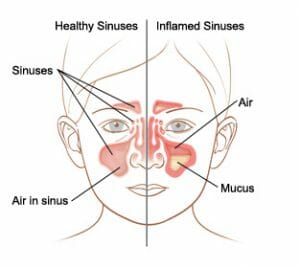
Your child’s doctor will diagnose and determine what is the best sinus pressure treatment for your child, the most common treatments for sinusitis in children are nasal or saline sprays, which are effective in relieving acute sinusitis. If your child is less than two don’t give over-the-counter cold medicines or decongestants.
A large percentage (90%) of kids will make a full recovery from an infection without taking antibiotics, these are only used for severe cases where there are other complications. Your child’s doctor may recommend seeing an ear, nose and throat specialist (Otolaryngologist) should the infection not clear up, he will examine your child’s sinuses and take a closer look at the nasal passage structure.
Two types of Sinusitis
There are two types of Sinusitis, acute and chronic, so what is the difference? Usually, acute sinusitis will be gone within the first week with proper care and medication whereas Chronic Sinusitis would be more severe requiring the assistance of a specialist for longer-term treatment (3-4 months)
Sinus Infection treatments
- Typically, nasal decongestant sprays are used because they help to ease sinus infection symptoms in the short term, it isn’t advisable to use these for any more than 3 days because it may make the congestion worse.
- Fluticasone, Mometasone or Triamcinolone are steroid nasal sprays that are a better option for prolonged use to help with nasal congestion because there is less risk of mucus buildup.
- Anti-histamines and decongestants can be got over the counter, the most popular are
- Zyrtec
- Allegra
- Sudafed
- Piriton
- Claritin
- Speak to your doctor if you have high blood pressure, glaucoma, prostate or sleep issues because decongestants aren’t usually recommended. Nasal irrigation has been shown in some recent studies to be useful for acute, and chronic sinusitis, seasonal allergies and allergic rhinitis.
Home remedy for Sinusitis relief
If you are using nasal irrigation at home, please use bottled water or boiled water to prevent any risk of infection. Try making up a nasal solution by mixing a half teaspoon of table salt and baking soda with a cup of warm water put the mixture in a nasal sprayer and spray into the nose. This will help to relieve the symptoms and remove allergies.
What have we found that works long-term as a sinus pressure treatment?
My wife and I wanted to find a permanent solution for sinus pressure relief, and by chance, we happened to be reading this useful article on colds, hay fever and sinus relief.
Serrapeptase or Serratiopeptidase are mentioned as a great natural sinus pressure relief that can be taken on an empty stomach with a glass of water. What’s more this enzyme has been used for more than 30 years to help with inflammation and pain relief.
How does Serrapeptase work?
It works by dissolving the mucus – build-up in the nasal passage and reducing the inflammation over time. My wife has tried most of the other measures listed above but the problem of Sinus infections kept coming back year after year, she needed a more permanent solution to her sinus pain.
We searched the internet to find out how people that were using Serrapeptase for Sinusitis were getting on:
We read in this latest testimonial” 11.4.18 I have been using Serrapeptase for three months now as I suffer from throat infections and blocked sinuses quite regularly. I can safely say I have never felt better. A great natural enzyme product. Would highly recommend it. Very informative website! Theresa”
Further Serrapeptase testimonials
I am a regular addict to Serrapeptase for some years now. I am very much satisfied with the effects it had on my sinus – problems that disappeared. Continuing a maintenance dose for now.
Meanwhile, more and more family members are taking Serrapeptase. The latest one is my son’s girlfriend, who is also showing some chronic sinusitis problems. The news of the day is that she discovered being pregnant – the foetus should be around 5 to 6 weeks now.
We checked the website for the recommended Serrapeptase dose
A: I normally start people on 1 – 80,000 in x 3 times per day, 30 mins before eating with water.
Because my wife had such severe symptoms we decided to go for the 250,000 IU Serrapeptase, one tablet per day on an empty stomach. Depending on the severity of your sinusitis symptoms you can choose from different strengths (40,000 IU – 250,000 IU)
Results
The results have been nothing short of amazing, she is pain-free for the first time in a long time, her breathing and sleeping pattern are so much better, no more facial pain, and she is so pleased.
Why not try this amazing enzyme as a natural sinus pressure treatment?
Related Articles:
Natural Remedies for Sinusitis
Natural remedy for a sinus infection
How to relieve sinus pressure and headache?


